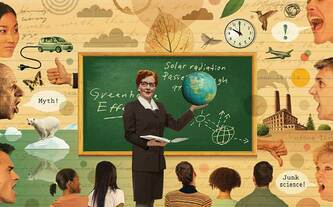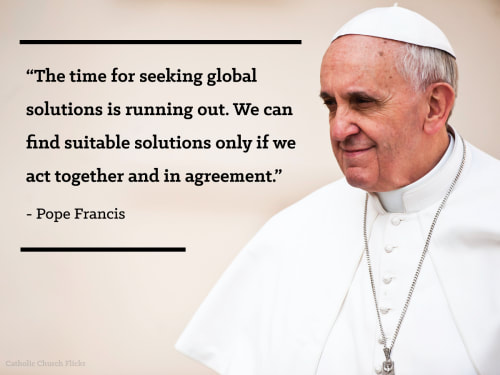| Protecting yourself and your community from COVID-19 by staying home and practicing social distancing can bring unforeseen opportunities. Consider exploring web-based educational resources. As Earth Day approaches, the seclusion offers an occasion to become better versed in the scientific, political, and moral issues that relate to climate change. |
| With regard to the science, online educational resources ranging from cartoons and other animations for children all the way to graduate level courses exist. The easiest approach is simply to google “Climate change educational resources” and read the descriptions for the first dozen or so query returns. Of course, the thousands of materials found vary in value. For educating children or those who need very clearly formulated explanations, one approach is to role-play as a teacher giving lessons to your students about climate change. Taking notes while you do this will equip you with explanations that convey science to even science-resistant leaders. |
For teachers, excellent materials that are both informative and interesting are available at the Common Sense Education site. For more advanced study, two great options are the Weather Channel and the National Atmospheric and Oceanic Administration. Both allow the reader to browse materials to find those that best address personal knowledge deficiencies. NOAA is particularly impressive in that the information, while very technical in many ways, is quite understandable. NOAA continues to publish climate data despite the current administration’s attempts to eliminate all government climate science websites.
| Climate change is no longer an abstract threat to the planet. We are seeing increasing temperatures, animal and plant extinctions, and rising ocean levels. It is unclear if actions taken now will reverse the trend, but we know that inaction will lead to disaster and potentially impact all of creation. This fact alone gives us a moral obligation to become informed. Pope Francis, in his Encyclical Laudato Si’, explains the moral imperative for taking care of the planet. His message should inspire us to increase our personal knowledge and then share it with those who make policy decisions affecting our planet. If we educate others gently and persuasively, there is hope that we will make progress. |




 RSS Feed
RSS Feed